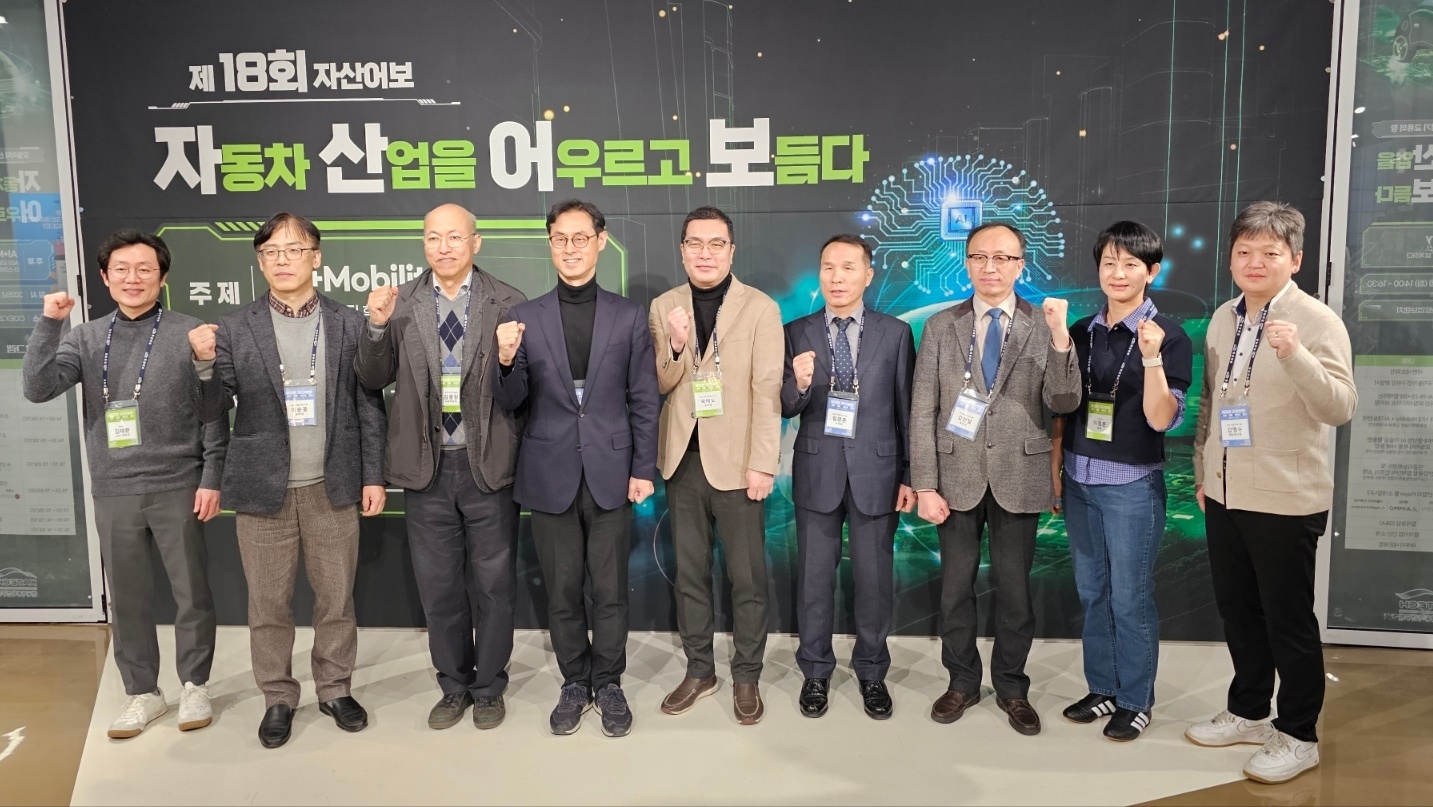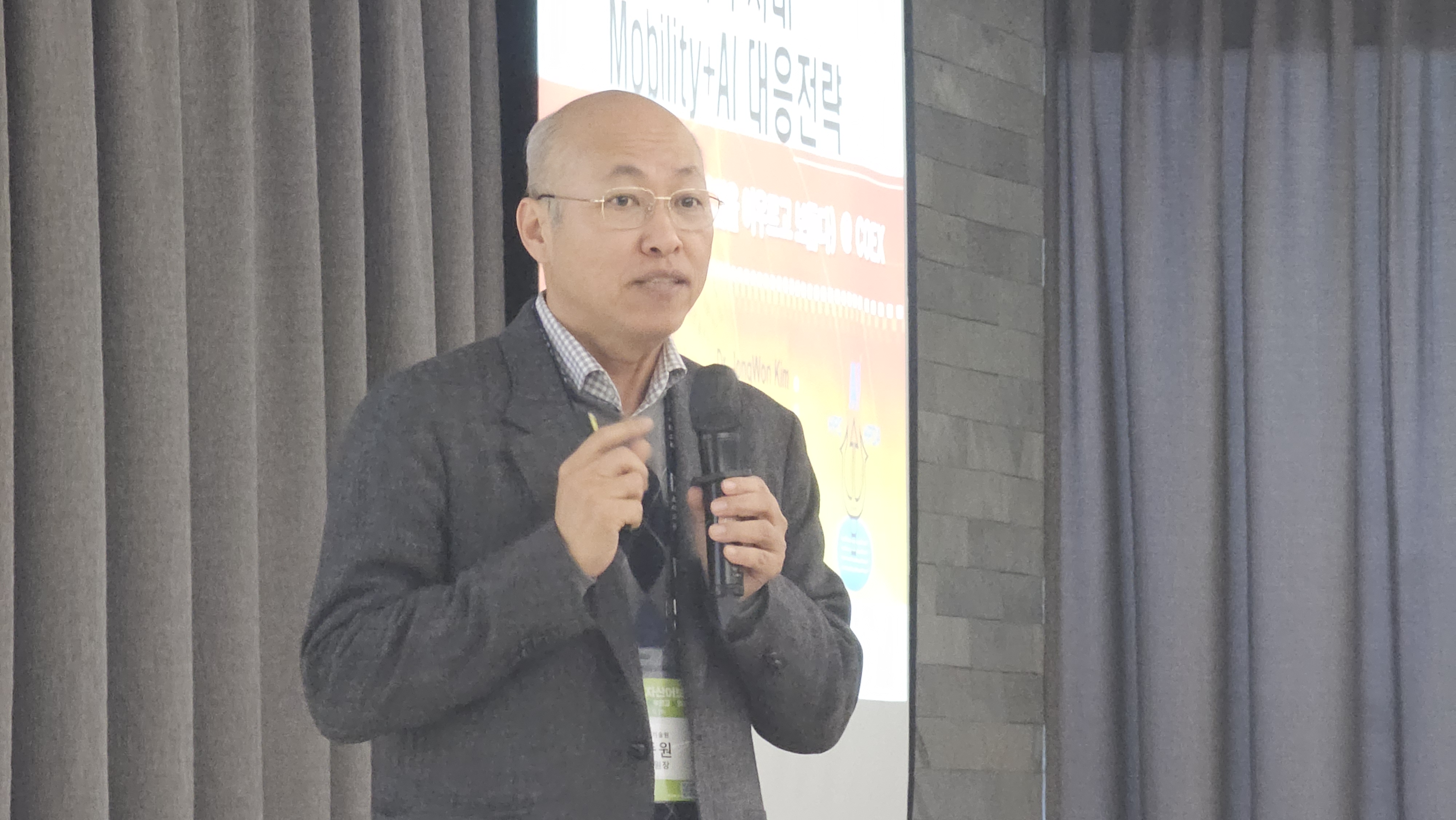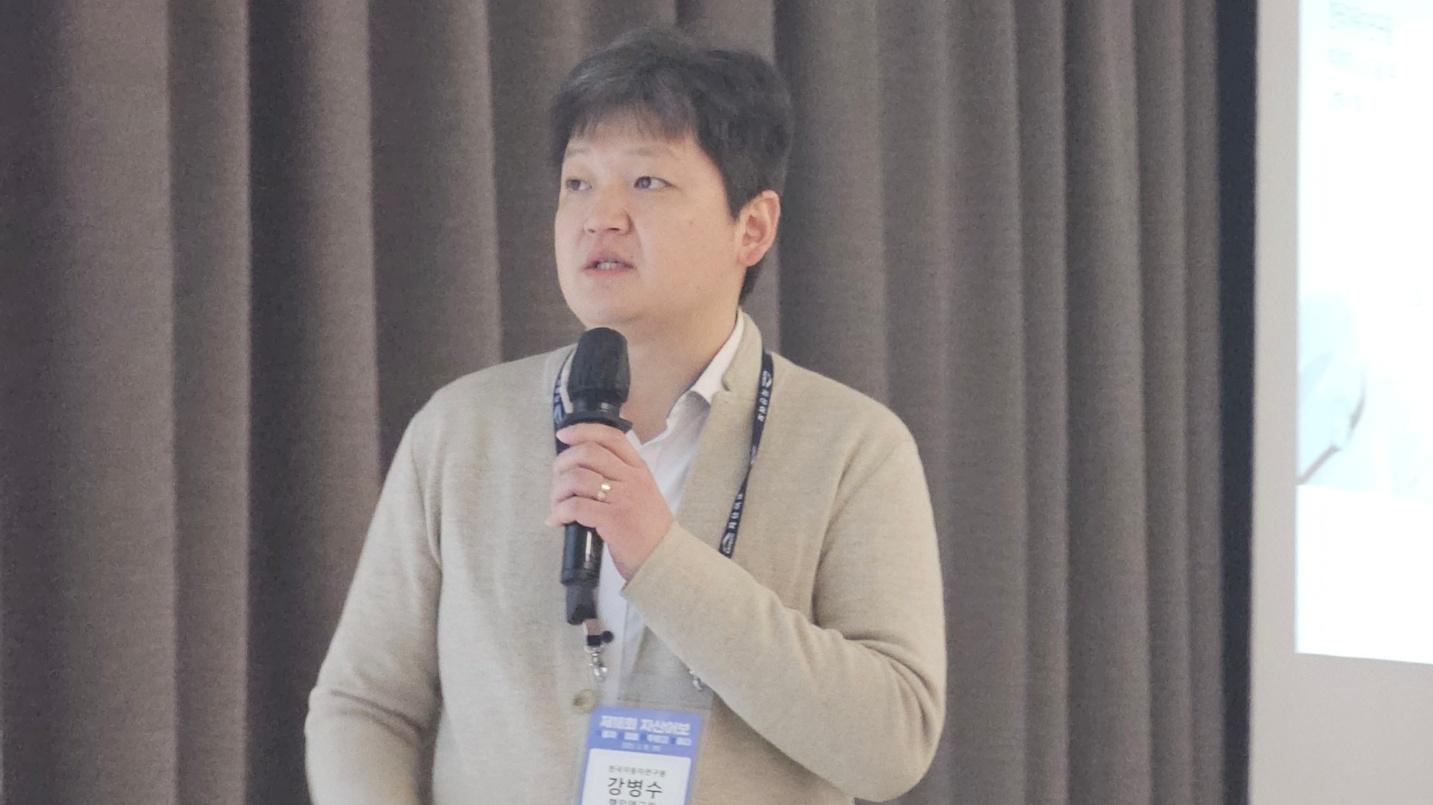AI 기술 발전 그 이상의 패러다임 변화에 대응하기에 자동차 업계도 기술 혁신이 요구되고 있다. 모빌리티에 융합되는 AI 기술 대응 전략을 고심하는 자리가 마련돼 업계 관계자들이 한자리에 모였다.

▲
제18회 자산어보에서 진종욱 한자연 원장을 비롯해 발표연사 및 주요 관계자들이 기념 촬영을 진행하고 있다.
한자연, 18회 자산어보 개최...AI·모빌리티 융합 주제
“최근 AI 학습용 고품질 데이터·숙련 AI 인력 요구↑”
자율주행 위한 합성 데이터, 합스부르크 AI 극복 必
AI 기술 발전 그 이상의 패러다임 변화에 대응하기에 자동차 업계도 기술 혁신이 요구되고 있다. 모빌리티에 융합되는 AI 기술 대응 전략을 고심하는 자리가 마련돼 업계 관계자들이 한자리에 모였다.
18일 서울 삼성동 코엑스 스타트업브랜치에서 한국자동차연구원이 제18회 자산어보 행사를 개최했다.
‘AI와 모빌리티 혁신, 더 스마트한 이동을 설계하다’를 주제로 열린 이번 행사는 △산업통상자원부 △광주과학기술원 △인공지능산업융합사업단 △LG전자 △에이모 △어플라이드 인튜이션 등 AI 기술 및 모빌리티 관련 기업들과 유관기관 관계자 100여명이 참석했다.
진종욱 한자연 원장의 환영사를 시작으로 △초격차 시대 Mobility+AI대응전략(광주과학기술원 김종원 AI대학원장) △초거대 생성형 AI 기술을 활용한 모빌리티 적용 사례 동향(한자연 강병수 빅데이터·SW기술부문 책임연구원) △인공지능트렌드 및 AI 산업융합 집적단지 인프라 소개(인공지능산업융합사업단 곽재도 본부장) △선도기업 발표가 진행됐다.
진종욱 한자연 원장은 “AI는 뜨거운 화두로 모빌리티와 관련해 새로운 변화를 이끌고 있고 있다”면서, “설계, 생산, 운영, 서비스 전 영역에 새로운 변화 가져올 것으로 기대된다”고 전했다.
한편, 한자연 광주지역본부와 빅데이터·SW기술부문의 연구성과·기술컨설팅 부스 및 △어플라이드 인튜이션 △비트센싱 △모비젠 △베슬에이아이 △데이터 얼라이언스 등 혁신 기업 5곳의 홍보 부스가 마련됐다.
곽재도 인공지능산업융합사업단 본부장은 “최근 업체들이 과거엔 비용 지원을 한목소리로 주장하던 것과 달리 요즘엔 ‘잘 가공된 품질 좋은 데이터 필요하다’, ‘숙련된 AI 인력 부족하다’고 말하는 경우가 많다”고 언급해 데이터 확보의 중요성이 크게 대두되고 있는 것으로 확인된다.
■ 기조연설 “AI, 군비 경쟁 수준으로 경쟁”

▲김종원 광주과학기술원 AI대학원장
김종원 광주과학기술원 AI대학원장은 기조연설에서 초격차시대 모빌리티와 AI 대응 전략을 주제로 발표했다.
김 원장은 “데이터센터가 모든 인프라 정의하는 건 아니다”라면서, “사회 전반의 데이터, 컴퓨터 인프라 성숙 등이 받쳐줘야 한다”고 강조했다.
데이터센터는 AI 인프라와 산업에서 상징적으로 큰 영역을 담당하는 것이며, AI에서 모빌리티를 융합할 때는 데이터가 충분할 때 AI가 힘을 발휘할 수 있는 것이다.
김 원장은 “모빌리티는 차들이 움직이는 범위 즉 ‘도시’로 넘어가야 한다”면서, 디지털 트윈과 AI 인프라 구축을 스마트 시티 단계로 크게 바라봐야 한다고 주문했다.
■ 자율주행 위한 합성 데이터, 합스부르크 AI 극복 必

▲강병수 한자연 빅데이터·SW기술부문 책임연구원
강병수 한자연 빅데이터·SW기술부문 책임연구원은 초거대 생성형 AI 기술을 활용한 모빌리티 적용 사례 동향을 소개했다.
강 연구원은 “AI 개발은 모델 중심과 데이터 중심으로 나뉘며, 데이터 중심으로 많이 가고 있다”고 설명했다. 향후 상호보완적인 발전이 예상되지만, 현재 단계에선 적은 데이터 기반으로 물리 AI를 학습시킬 수 있는 방안들이 필요한 상황이다.
적은 데이터로 학습하기 위해 생성 데이터를 활용하고 있지만 이때 ‘합스부르크 AI 현상’을 주의해야 한다고 강 연구원은 지적했다. 합스부르크 AI는 생성 데이터를 지속 학습할 때 성능이 열화되는 문제로, 데이터 분포가 점점 한쪽으로 기울며 성능 자체가 떨어지는 문제를 야기하게 된다.
강 연구원은 “고품질 리얼 데이터를 지속 주입하는 숙제 안고 있는 상황”이라면서, “자율주행 생성 데이터도, 고품질 데이터를 만들어 가는 것이 중요하며. 평가 모델 구현해 자동적으로 검증·평가할 수 있는 피드백 구조 만들 수 있어야 한다”고 제언했다.


